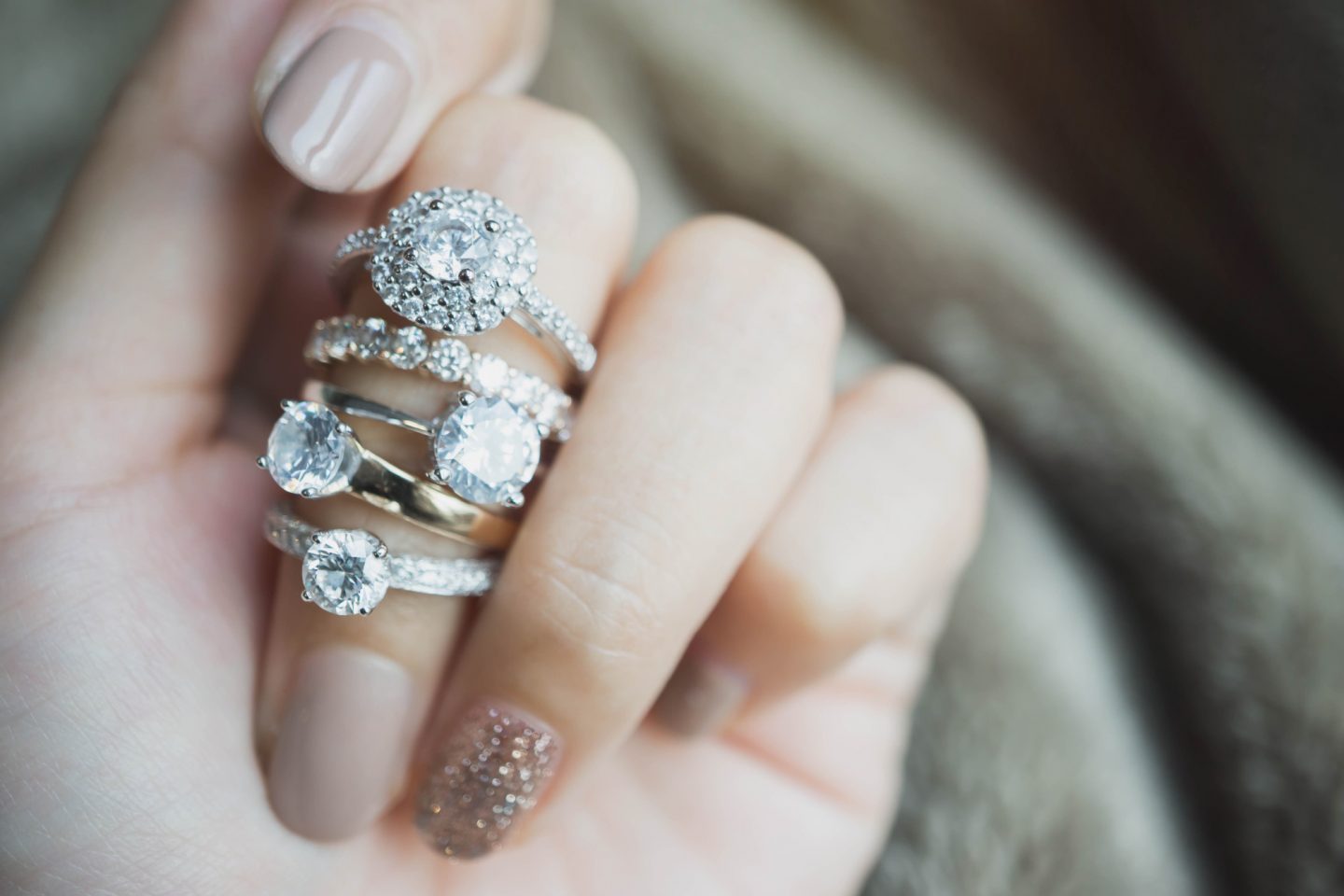The Main Principles Of Engagement Rings
The Main Principles Of Engagement Rings
Blog Article
The 7-Second Trick For Engagement Rings
Table of ContentsThe Greatest Guide To Engagement RingsThe Single Strategy To Use For Engagement RingsAbout Engagement RingsFascination About Engagement RingsThe Buzz on Engagement RingsSome Known Factual Statements About Engagement Rings
Tension-style settings also provide better security for the gemstone. Most tension-style setups are created round fantastic diamonds or other round gems, however they can be customized to fit numerous other forms. The setting can also be modified to have accent treasures around the centre stone or to enable a side rock on each side of the centre stone.Produces an optical illusion of the centre gems hanging in the air. If it has prongs, they can end up being loosened with wear. This is quickly remedied by having the ring consistently cleansed and inspected by a jeweler.
All about Engagement Rings
The first ring with a true stress setup was made in Vreden, Germany in the 1970s. Ursula Exner and well-known carver Walter Wittek collaborated to layout and make this first ring. In the complying with years, various other jewelers designed their very own stress setups, as well as the more protected and sensible tension-style settings.

This gives the ring an easy, however elegant charm that functions well for both guys and women's wedding rings, in addition to engagement rings. The flush setup is in some cases also called a gypsy setup. We can not state for sure how it came to have that name, yet possibly it is since the setting represents a free spirit.
An Unbiased View of Engagement Rings
Flush settings function well for round, square or rectangle-shaped gemstones, however they can be hard to adjust to specific expensive cuts, for example, a heart-shaped diamond. Keeps the gems safe and protected. Wears specifically well. Practical for individuals with active way of lives. Attracts attention for having a simple, however elegant elegance.
Commonly unwise for heart-shaped gems and a couple of other treasures with fancy cuts. Rings with flush or gypsy setups have actually been around given that the late 1800s.
Jewelry engagement rings have just one centre gems on a simple band. Numerous other involvement rings, though, also have accent gems.
What Does Engagement Rings Mean?
There are 4 settings that are commonly made use of to hold accent gemstones. Castle settings are made straight on the shank of the ring.
The prongs in a castle setup can be directly and down with basic spherical ideas or they can be cut at an angle so that they look like fishtails. These fishtail prongs can additionally be called French cut prongs. Castle settings are extremely flexible. They can be established completely around the shank, just put across the ring's shoulders or utilized to produce a halo around the centre gems.
The Ultimate Guide To Engagement Rings
The steel sides of the castle setup are constantly reduce low, typically in a scallop pattern. This enables much more light to reach the accent treasures and increases their brilliance. If it is well made, the reduced scalloped side of the castle setting can also create an optical illusion. It allows the sides of the gems to be conveniently seen and produces the perception that the treasures are being kept in an undetectable setup.
Rises light refraction and luster. Catches focus with its shimmers. Creates the illusion of an unseen setup. Has a classy charm. Easy to clean and calls for little maintenance. The small prongs can end up being loosened. We advise that rings with the castle setting be cleaned periodically by a jeweller, so that the prongs can be examined.
The prongs on a castle setup can capture on clothes, but this is uncommon due to the fact that the prongs are smooth. The castle setting can be utilized to make beautiful infinity rings.

7 Simple Techniques For Engagement Rings
The grain setting is a really secure setup. The sides of the network secure the accent gems from bumps and scratches and the handmade prongs rarely come to be loose. One downside of the grain setup is that the gemstones get much less light since they are put down in the channel. This causes the gems generating slightly much less luster and sparkle.
Every gem in the bead setting is surrounded by 4 useful link glossy grains that are degree with the top of the shank. These beads catch the light and release their very own shimmers in every instructions. The beads' shimmers together with the radiance and sparkles produced by the accent treasures bring the grain setting to life and give it continuous shimmers.
They can utilize it to make eternity rings, as well as to embellish the easy shank or more complex split shank that some interaction rings have. In the basic grain setting, the accent gems are embeded in one straight line. Periodically, however, jewelers will raise the glimmer on an involvement ring by read this post here adding two or even more parallel lines of grain set gems.
Report this page